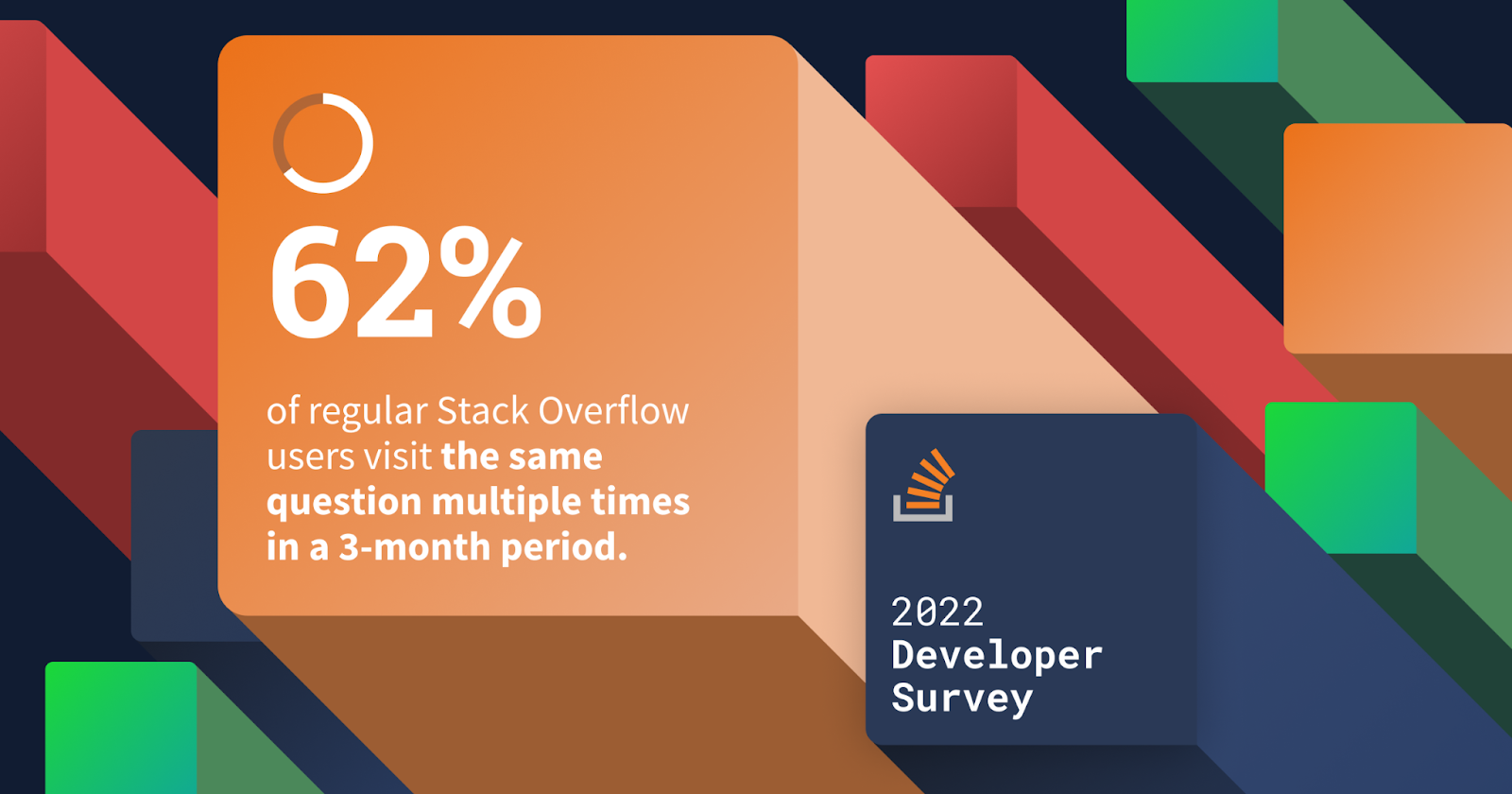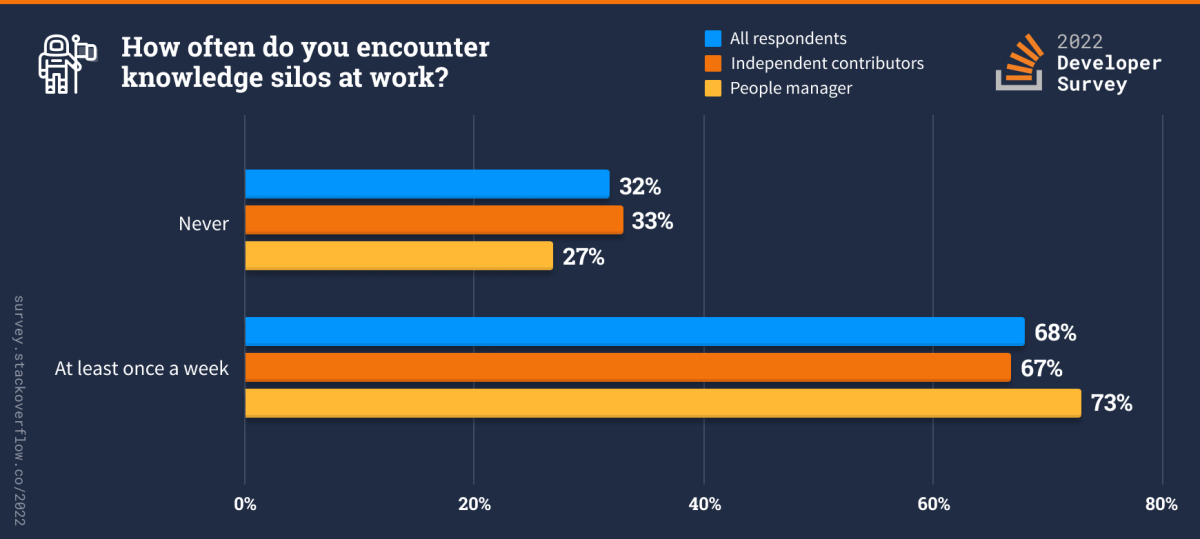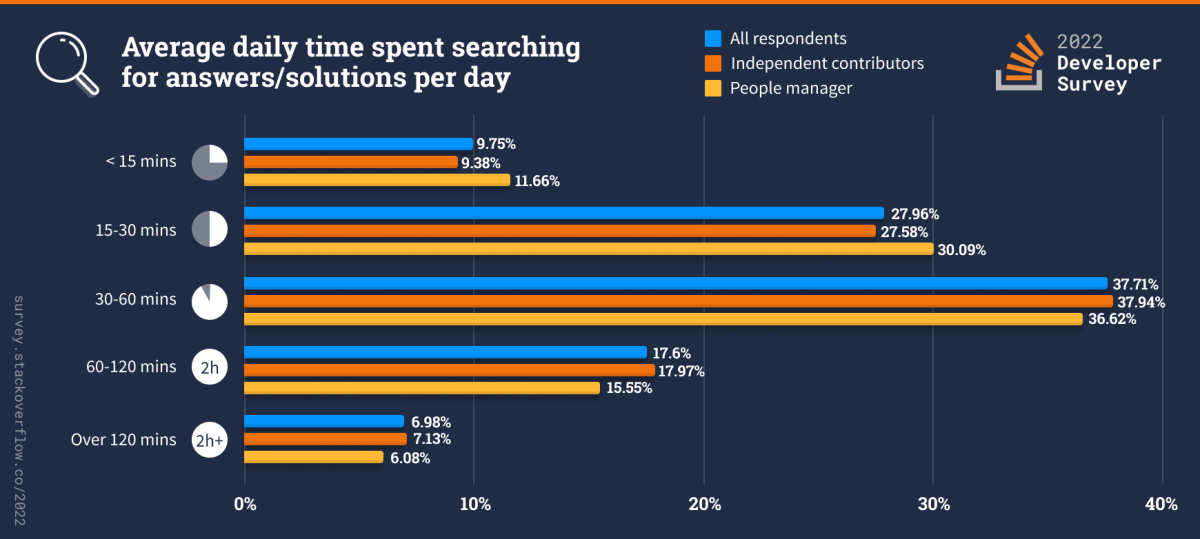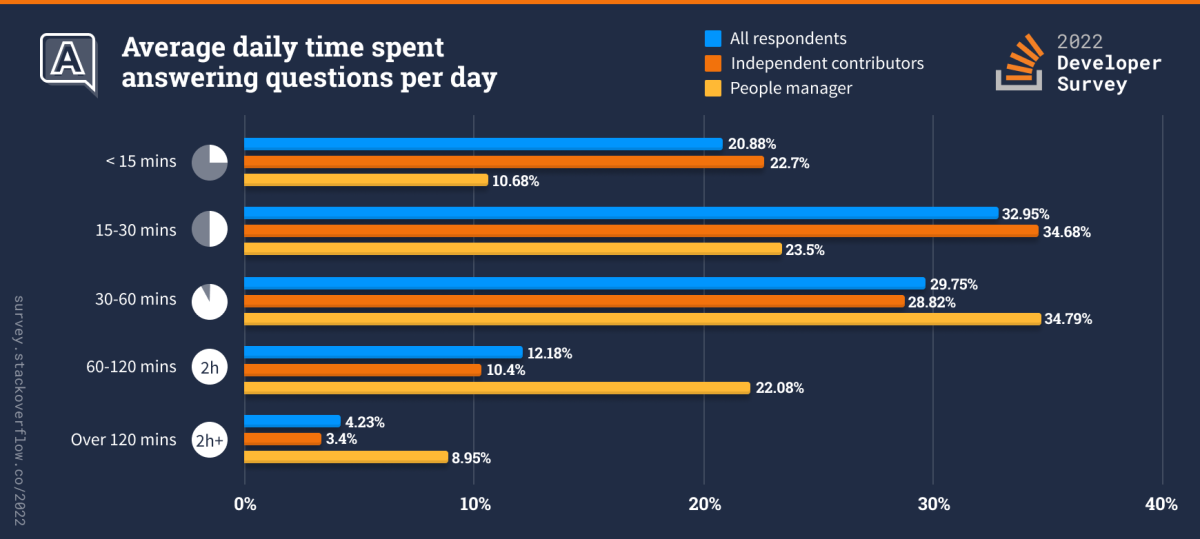You’ve been waiting patiently, but now the wait is over: the results of the 2022 Developer Survey are here. Over 73,000 developers from 180 countries each spent roughly 15 minutes answering our questions. This year’s survey was longer than previous years’ as we wanted to follow up on new threads as well as provide a historical throughline with the questions we ask year over year. We are so grateful to you for the time you spent on our survey.
Our new questions focused on how coders learn their trade. We found that older code crafters are most likely to learn from books, while the new generation of coders (under 18) relies on online materials and their friends and family. The overall percentage of those learning to code online, however, increased from 60% to 70%. With so many people working remotely after the pandemic—nearly 85% of organizations represented in this survey have some remote workers—it could be that more and more of our daily lives are moving online as well.
Additionally, as the pandemic drove us out of the office and into remote work, remote work may be driving us away from full-time employment to more self-directed work. The percentage of professional developers that state that they are an independent contractor, freelancer, or are self-employed has risen by about five points to 16.6%, while the percentage of those in our top five responding countries (United States, India, Germany, United Kingdom, and Canada) who have full-time employment has fallen. Has the switch to remote work triggered a new wave of entrepreneurship as well?
Our other new line of inquiry was version control. We had previously included Git in the “Other tools” section, where it took top honors. It was no surprise that Git was far and away the top version control system, especially among professionals, but what was surprising is that 17% of learners do not use a version control system at all. I guess they’ll wait until onboarding at their first job.
The big draws with the Developer Survey have always been the technology rankings, where technologists profess their most used, loved, dreaded, and wanted languages, frameworks, and more. The top five languages for professional developers haven't changed: JavaScript is still the most used, and Rust is the most loved for a seventh year. The big surprise came in the most loved web framework category. Showing how fast web technologies change, newcomer Phoenix took the most loved spot from Svelte, itself a new entry last year.
Two years ago we asked how you felt about searching for an answer and finding a purple link. Sparked by that, the team wanted to see how many of us are visiting the same question more than once. Our data experts found that the majority of people come back to an answer over and over: 62% of regular Stack Overflow users visit the same question multiple times in a three-month period.* One of our data scientists tells us he probably visits this question once a month. Why remember everything when you can use Stack Overflow as your second brain?

In this year’s survey, we had a special section at the end where we asked professional developers to tell us what impacts their productivity at work, how often it happens, and how much time it takes out of their day. More than 36,000 developers answered. Their responses can help the developer community start to quantify the impacts of the daily, invisible productivity frictions.
In short, most professional developers are experiencing some level of decreased productivity every week. 68% of respondents say they encounter a knowledge silo at least once a week. For people managers, often the more experienced developers, 73% report encountering a knowledge silo at least once a week.

About 63% of all respondents spend more than 30 minutes a day searching for answers or solutions to problems, with 25% spending more than an hour each day. This productivity impact can add up. For a team of 50 developers, the amount of time spent searching for answers/solutions adds up to between 333-651 hours of time lost per week across the entire team.

On the other side, 46% of all respondents spend more than 30 minutes a day answering questions. 32% of people managers spend over an hour each day just answering questions, while only 14% of independent contributors spend over an hour answering questions. Again, this productivity impact can add up. For a team of 50 developers, the amount of time spent answering questions adds up to between 278-568 hours of time lost per week across the entire team.

Check out the full results from this year’s Developer Survey here. If you’re interested in digging into the data and finding your own insights, we’ll be releasing the results dataset later this year. And as we have done for a while now, we’ll continue to run smaller, focused surveys on everything from web3 to what makes developers happy at work.
Our mission is to empower the world to build technology through collective knowledge. You all have helped make this survey possible, and we hope that the results give you insight into where the world of software and technology is today. Please share the results of this survey and we’ll see you next year.
If you have questions about the survey results, you can reach us at press@stackoverflow.com.
*activity from Feb 1 through April 30 of this year; “regular users” are defined as those who visited Stack Overflow more than 5 times over the 3-month period - recurring users should mimic a typical employee who attempts to ask any question from a coworker.
